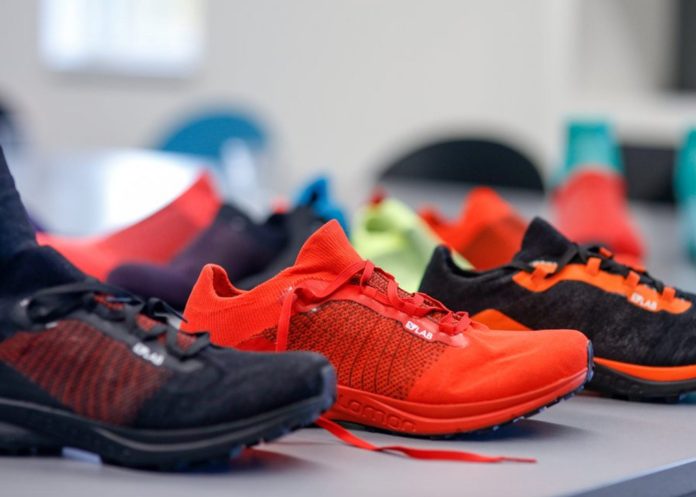Textile production company Chamatex, in conjunction with sports equipment brand Salomon, are to build a smart shoe factory in France. The site will run automated production of sports shoes, “from start to finish”, the pair said. Siemens will be responsible for sundry IoT and AI functions at the venue.
The factory, called Advanced Shoe Factory 4.0 (ASF 4.0), is a subsidiary of Chamatex Group. Salomon, its partner on the build, wants to bring shoe production home to France, and automate the process as much using new Industry 4.0 techniques. Localised and automated production will bring new flexibility, reduce carbon emissions, and offer a “solution to Asian production costs,” said Salomon.
The factory will open in mid-2021; the first Salomon products will arrive in market shortly afterwards. They will be identified as ‘Made in France’, and distributed in Europe, said Salomon. Salomon has committed to reduce its carbon footprint by 30 percent by 2025 and achieve carbon neutrality by 2050.

The ASF 4.0 site in Ardoix, a commune in the Ardèche department in the Auvergne-Rhône-Alpes region of southern France, about 200 kilometres to Salomon’s headquarters in Annecy, will produce 500,000 pairs of shoes per annum, and up to one pair per minute. It will employ 50 staff. Other brands, including Babolat and Millet, will also contract Chamatex to produce shoes in their names at the new venue.
Siemens has been engaged with both companies on digital transformation “for many years”, it said, and in the planning for the ASF 4.0 plant from the start. Siemens said its remit covers “many technologies”, including augmented reality, digital twin, autonomous robots, it added. More than the rate of production, it said automation and analytics tools will be used to switch quickly between production jobs, for the various brands.
Siemens said in a statement: “This plant adapts perfectly to the needs of each of its users by allowing the production of small or medium quantities, or the re-provisioning of an existing product. One of the strengths of this project is being able to duplicate itself for other industries and thus make it possible to rethink the relocation of certain sectors in France to create jobs and develop businesses.”
Salomon said: “The benefits of local production are many. First, simplified logistics will allow for greater speed to market and reactivity to local product needs such as potential stock shortages in the European market. Second, the local factory will offer greater flexibility in the development of Salomon’s product line, allowing the company to test new models that might be produced in smaller volumes.”
Many shoes from the ASF 4.0 factory will use the Matryx material that Chamatex supplied to Salomon for the Cross / Pro trail running shoe, which debuted this Summer. The Cross / Pro has a four-way sock-like upper with multi-fit technology to adapt to the foot shape. The pair will apply knowledge from Salomon’s ME:sh range in 2017 and 2018, which involved the use of robotics to create personalized running shoes inside its design centre in Annecy.
Guillaume Meyzenq, vice president of footwear at Salomon, said: “When Chamatex presented us with the idea of partnering on the ASF 4.0 project, we viewed it as the perfect opportunity to bring some of our production closer to home and transfer shoemaking skills to France. Not only do we expect to reduce the development life cycles of our products, but also lessen our carbon footprint during the development and transportation processes.”
He added: “The ME:sh footwear range was our first venture into full automated production, product customisation and localized footwear production. It was created to learn how to become more flexible and reactive to consumers’ needs, to employ the use of robots in production, to improve speed to market and to lessen the carbon footprint of footwear production. After this first step, we’re excited to apply those key learnings as we kick off the ASF 4.0 project with Chamatex.”

